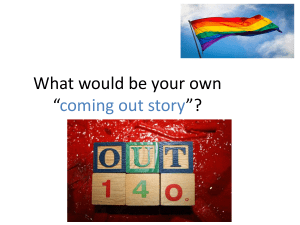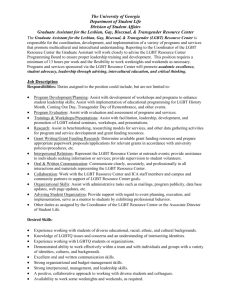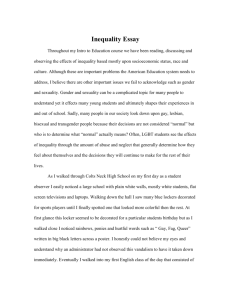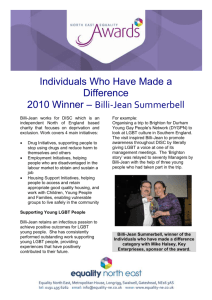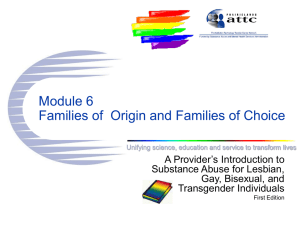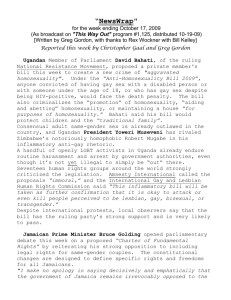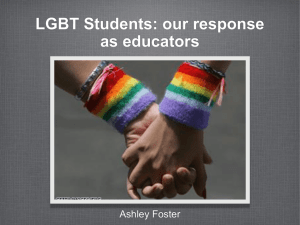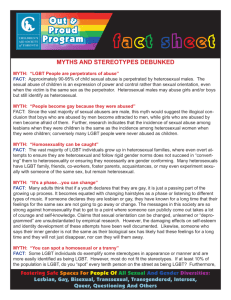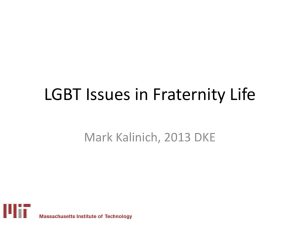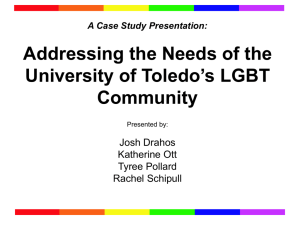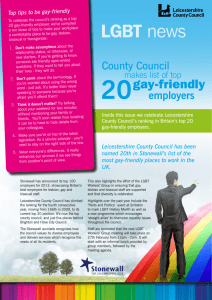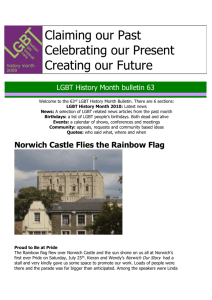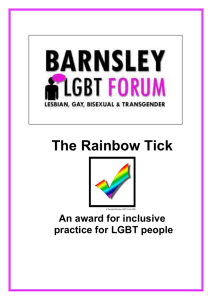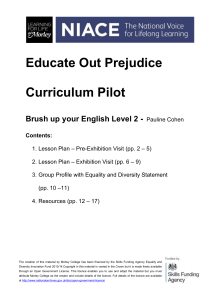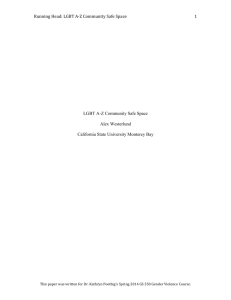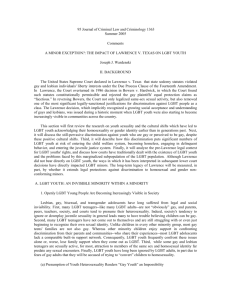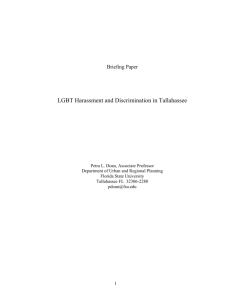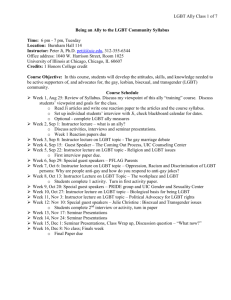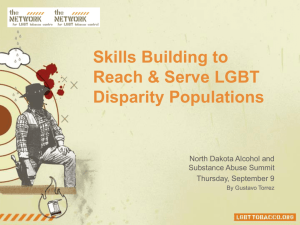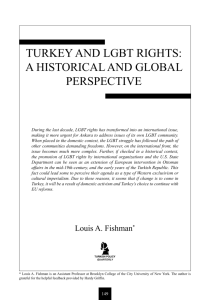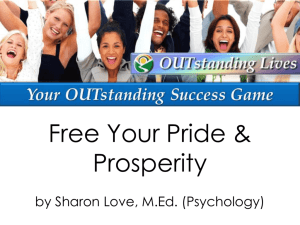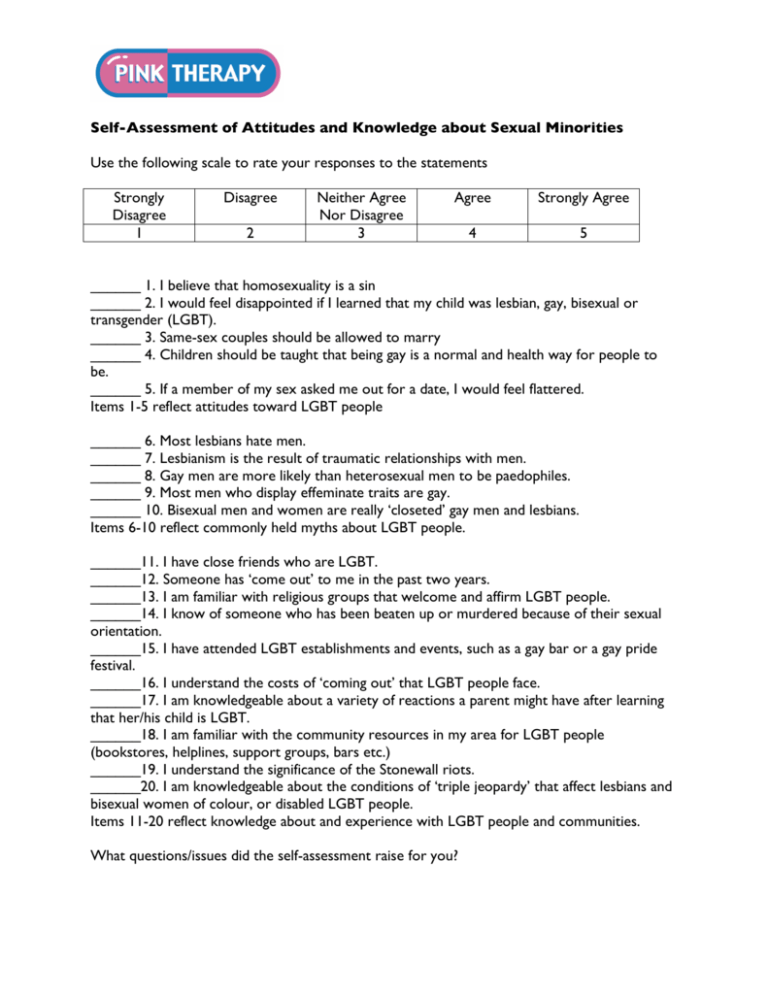
Self-Assessment of Attitudes and Knowledge about Sexual Minorities
Use the following scale to rate your responses to the statements
Strongly
Disagree
1
Disagree
2
Neither Agree
Nor Disagree
3
Agree
Strongly Agree
4
5
______ 1. I believe that homosexuality is a sin
______ 2. I would feel disappointed if I learned that my child was lesbian, gay, bisexual or
transgender (LGBT).
______ 3. Same-sex couples should be allowed to marry
______ 4. Children should be taught that being gay is a normal and health way for people to
be.
______ 5. If a member of my sex asked me out for a date, I would feel flattered.
Items 1-5 reflect attitudes toward LGBT people
______ 6. Most lesbians hate men.
______ 7. Lesbianism is the result of traumatic relationships with men.
______ 8. Gay men are more likely than heterosexual men to be paedophiles.
______ 9. Most men who display effeminate traits are gay.
______ 10. Bisexual men and women are really ‘closeted’ gay men and lesbians.
Items 6-10 reflect commonly held myths about LGBT people.
______11. I have close friends who are LGBT.
______12. Someone has ‘come out’ to me in the past two years.
______13. I am familiar with religious groups that welcome and affirm LGBT people.
______14. I know of someone who has been beaten up or murdered because of their sexual
orientation.
______15. I have attended LGBT establishments and events, such as a gay bar or a gay pride
festival.
______16. I understand the costs of ‘coming out’ that LGBT people face.
______17. I am knowledgeable about a variety of reactions a parent might have after learning
that her/his child is LGBT.
______18. I am familiar with the community resources in my area for LGBT people
(bookstores, helplines, support groups, bars etc.)
______19. I understand the significance of the Stonewall riots.
______20. I am knowledgeable about the conditions of ‘triple jeopardy’ that affect lesbians and
bisexual women of colour, or disabled LGBT people.
Items 11-20 reflect knowledge about and experience with LGBT people and communities.
What questions/issues did the self-assessment raise for you?
Scoring:
It is not necessary to score your responses. Rather, they can be a basis for discussion of each
item. However, if you choose to summarise your score, here is the key:
Reverse score (that is, 1=5, 2=4, 3=3, 4=2, 5=1) the following items, 1, 2,6,7,8,9 and 10. Then
add up all the items for a total score.
Scores can range from 20 to 100 and higher scores reflect positive attitudes and more
knowledge and experiences with LGBT people and communities. Lower scores reflect negative
attitudes and limited knowledge and experiences with LGBT people and communities.

